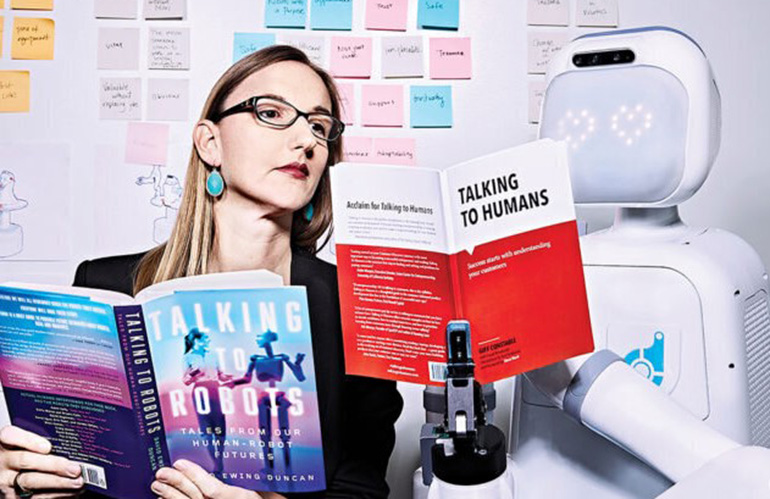In a strategic move that signals the growing sophistication of healthcare robotics, Diligent Robotics has announced the formation of a prestigious AI Advisory Board, bringing together some of academia's brightest minds in robotics and artificial intelligence. The Austin-based company, known for its successful deployment of the Moxi robot in hospitals across the United States, is positioning itself at the intersection of practical healthcare automation and cutting-edge AI research.
The formation of this advisory board comes at a crucial moment in healthcare automation. With Moxi recently achieving the remarkable milestone of 110,000 autonomous elevator rides in healthcare facilities, Diligent Robotics has demonstrated the practical viability of robots in complex, unstructured healthcare environments. Now, the company is setting its sights on advancing the field of embodied AI – the integration of artificial intelligence with physical robotic systems.
"This represents a unique opportunity to push the boundaries of embodied AI," explains Dr. Andrea Thomaz, founder and CEO of Diligent Robotics. "We're bringing together our proven real-world success with the unmatched expertise of world-renowned researchers." This collaboration between commercial innovation and academic research could potentially reshape how robots interact with humans in healthcare settings.
The advisory board reads like a who's who of robotics research, featuring prominent experts from leading institutions. Stanford University contributes two members: Jeannette Bohg, who directs the Interactive Perception and Robot Learning Lab, and Dorsa Sadigh, a specialist in cross-embodiment robot learning. Carnegie Mellon University is represented by Artur Dubrawski, director of the Auton Lab, and Oliver Kroemer, known for his work in lifelong robot manipulation learning. Rounding out the board is Lerrel Pinto from New York University, who brings expertise in large-scale general robot learning.
What makes this advisory board particularly significant is its focus on collaborative robotics – machines designed to work alongside humans rather than replace them. This aligns perfectly with Diligent Robotics' mission since its founding in 2017: creating robots that complement human capabilities rather than competing with them.
The timing of this announcement is particularly relevant given the current challenges in healthcare. Hospitals continue to face staffing shortages and increasing demands on their resources. Moxi's success in managing routine tasks – demonstrated by those 110,000 elevator rides – shows how robotics can support healthcare teams by handling time-consuming but necessary logistical tasks, allowing medical professionals to focus on patient care.
The advisory board's expertise in areas like multisensory interactive mobile manipulation, machine learning for complex environments, and adaptive skill acquisition suggests that future developments could dramatically expand the capabilities of healthcare robots. Imagine robots that not only navigate hospital corridors and deliver supplies but also learn from their interactions with staff, adapting their behavior to better serve different departments or situations.
This initiative represents more than just a corporate advisory board – it's a bridge between theoretical research and practical application. The combined expertise of these academic leaders, when applied to real-world healthcare scenarios, could accelerate the development of more sophisticated and helpful robotic assistants.
The implications extend beyond just technical improvements. As Dr. Thomaz notes, this collaboration aims to "redefine how robots interact intelligently with the world around them." This could mean robots that are more intuitive to work with, better at understanding human intentions, and more adaptable to the dynamic environment of a hospital.
For healthcare facilities already using or considering robotic assistance, this development signals a commitment to continuous improvement and innovation. The involvement of such distinguished researchers suggests that future generations of healthcare robots will be even more capable of supporting medical teams effectively.
As healthcare continues to evolve and face new challenges, initiatives like this advisory board demonstrate how technology companies are working to provide meaningful solutions. By bringing together academic expertise with practical experience, Diligent Robotics is not just advancing the field of healthcare robotics – it's helping to shape the future of healthcare delivery itself.


















